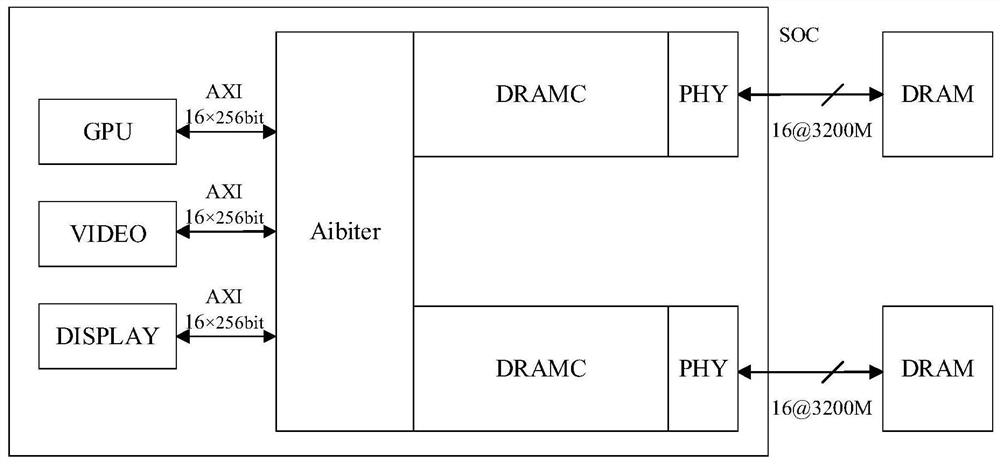Data reading and writing method and device, dynamic random access memory
A dynamic random, data read and write technology, applied in the field of memory, can solve the problems of small memory read and write length, limited read and write speed, etc., to reduce data read and write time, improve read and write speed, and save costs.
- Summary
- Abstract
- Description
- Claims
- Application Information
AI Technical Summary
Problems solved by technology
Method used
Image
Examples
Embodiment Construction
[0040] Example embodiments will now be described more fully with reference to the accompanying drawings. Example embodiments, however, can be embodied in various forms and should not be construed as limited to the embodiments set forth herein; rather, these embodiments are provided so that this disclosure will be thorough and complete, and will fully convey the concept of example embodiments to those skilled in the art. The same reference numerals in the drawings denote the same or similar structures, and thus their detailed descriptions will be omitted.
[0041] like figure 1 As shown, most of the current SoCs use AXI interface as the interface for direct memory access (DMA, Direct Memory Access) to access dynamic random access memory (DRAM, Dynamic Random Access Memory), for example, GPU / VEDIE / DISPLAY accesses DRAM through AXI interface, The bit width (axi_size) of the data in the corresponding AXI command is usually 256 bits, and the length of the data is usually 8 or 16,...
PUM
 Login to View More
Login to View More Abstract
Description
Claims
Application Information
 Login to View More
Login to View More - R&D
- Intellectual Property
- Life Sciences
- Materials
- Tech Scout
- Unparalleled Data Quality
- Higher Quality Content
- 60% Fewer Hallucinations
Browse by: Latest US Patents, China's latest patents, Technical Efficacy Thesaurus, Application Domain, Technology Topic, Popular Technical Reports.
© 2025 PatSnap. All rights reserved.Legal|Privacy policy|Modern Slavery Act Transparency Statement|Sitemap|About US| Contact US: help@patsnap.com



